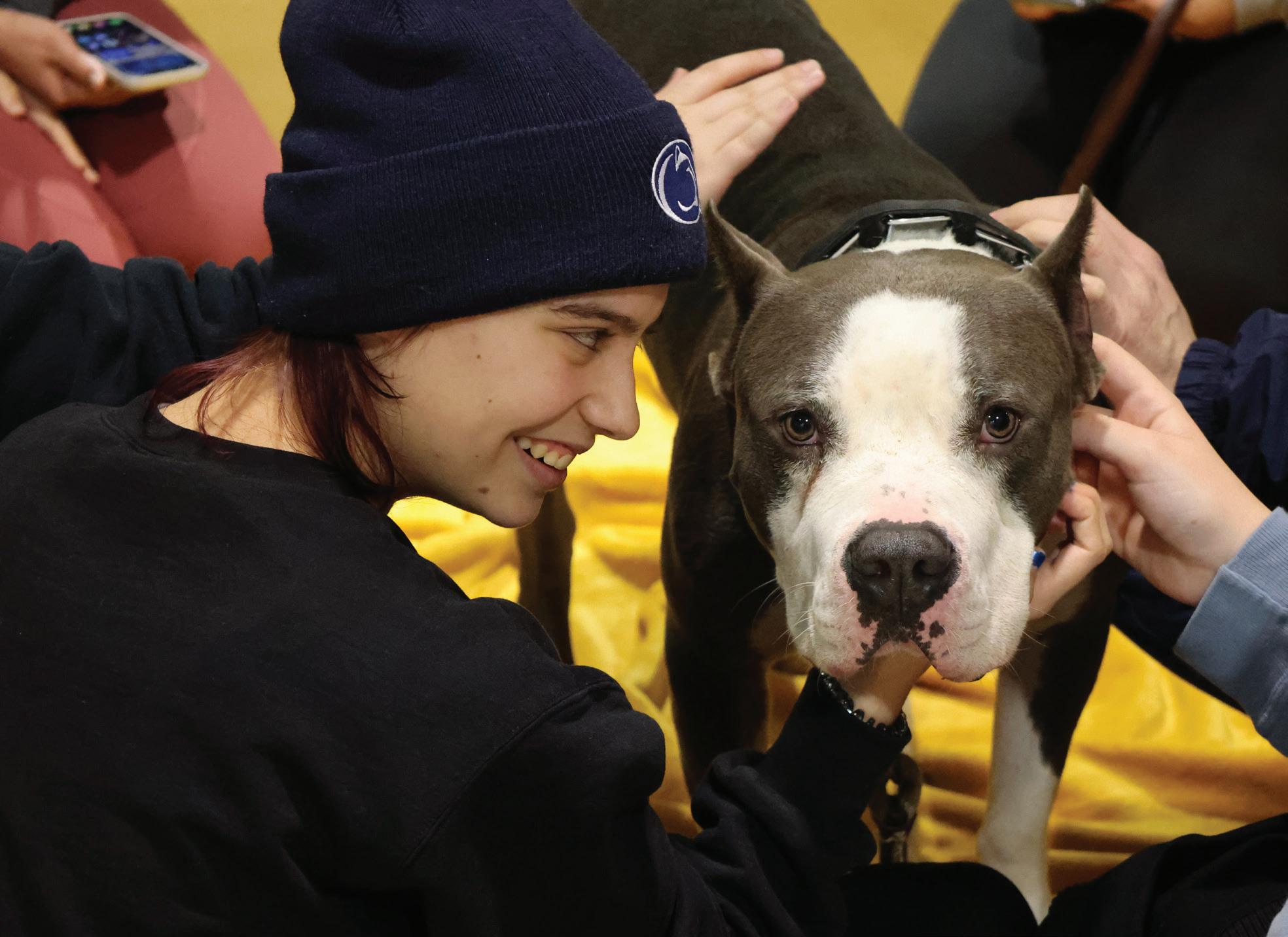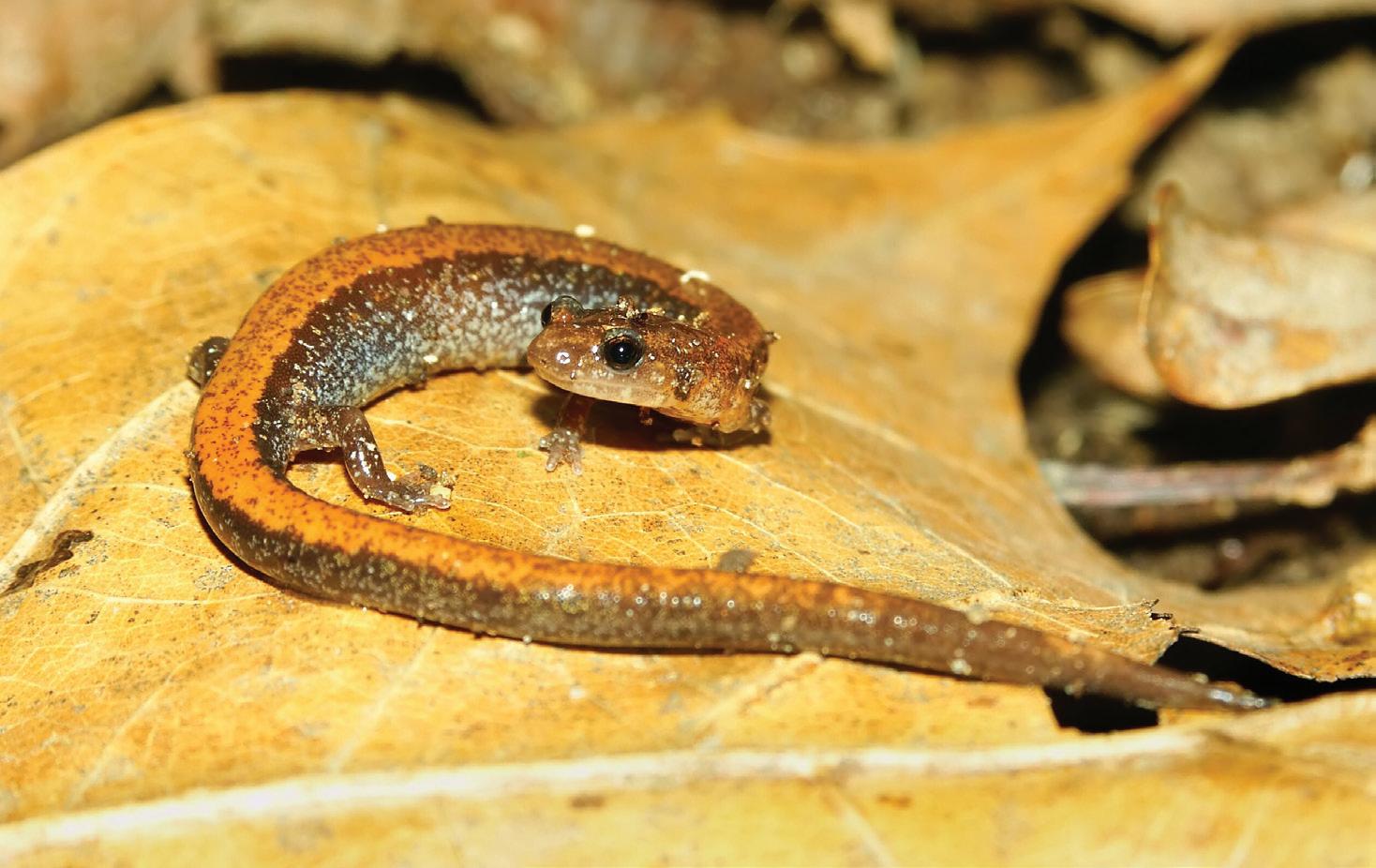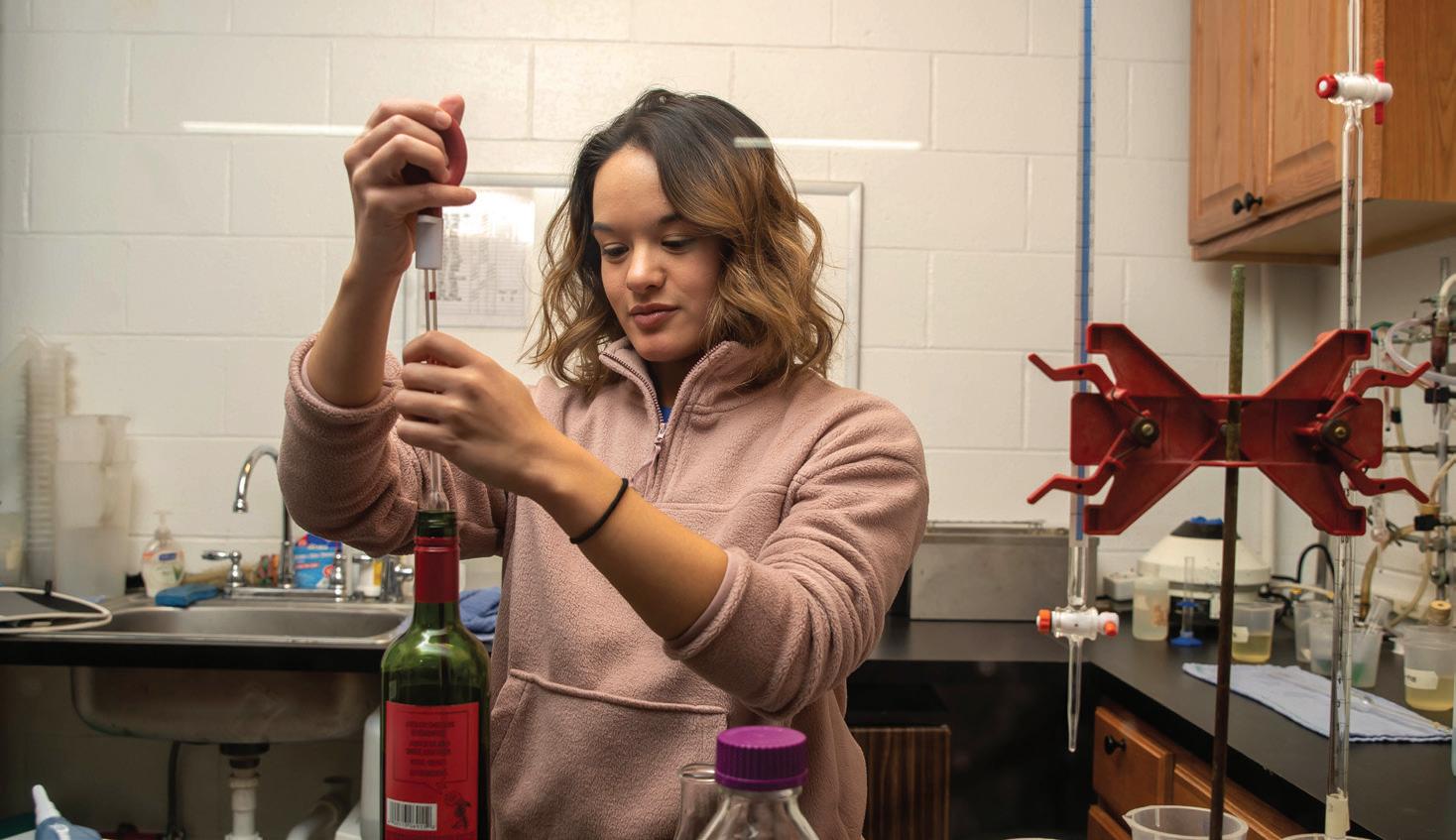
2 minute read
In Brief
finish line.
This past fall, the School of Science hosted a series of events to break the tension. Stress Less in the Science Complex featured three days of opportunities to take a breather with rescue dogs from the Erie Humane Society, dark sky relaxation programming in Yahn Planetarium, and virtual reality experiences, including immersive stress relief exercises, in VAR Edu. There’s nothing like petting a pup to release a few feel-good hormones and bring a smile to the faces of even the most stressed students.
CLIMATE CHANGE IS EVERYONE’S PROBLEM.
Penn State Behrend once again participated in the Worldwide Teach-In on Climate and Justice in March The program, which originated at Bard College, is designed to broaden discussion of climate-related issues, framing them through other disciplines, from psychology and global studies to investing and sustainable engineering.
“Climate change is not just a problem for scientists,” said Dr. Sherri “Sam” Mason, director of sustainability at Penn State Behrend and local coordinator of the event, which was staged in fifty countries around the world. “We’re all facing this problem, and we can all be part of the solution.”


Pathogen Detectors
Students get valuable field experience while helping scientists. The best way to protect a species from harmful pathogens is to reduce the odds that a pathogen is transmitted. Once one is found, biologists need to act quickly to defend species and ecosystem health. In nature, however, early detection is inherently challenging, requiring geographically broad and ongoing surveillance. That’s why some organizations committed to conservation and protection have turned to future scientists for help.
This past fall, students in Dr. Lynne Beaty’s Ecology class participated in the Student Network for Amphibian Pathogen Surveillance (SNAPS), a network of students, scientists, and educators working to keep tabs on emerging pathogens in amphibians. An initial focus is on Batrachochytrium salamandrivorans (Bsal), a deadly fungus that has yet to be found in North America, but is currently ravaging salamander populations in parts of Europe. Given the high likelihood that Bsal will come to North America, a global hotspot for salamander diversity, early detection is essential.

Sampling for Bsal is a simple procedure that involves swabbing the skin of amphibians, making it an ideal activity for scientists-in-training. SNAPS provided the supplies and protocols for sampling and biosecurity, and students got hands-on
Learn The Science Of Wine
Are you interested in food science? Mazza Vineyards in North East, Pennsylvania, is currently hiring for a full-time student co-op or internship experience in enology, the study of wines. The co-op will involve full-time summer/fall or spring/summer employment. Students can earn college credits and gain valuable training while being employed full-time at Mazza Vineyards. Participation in the co-op will result in a Penn State degree and employment experience in enology, fermentation, and the wine industry. For more information, email mac17@psu.edu.

experience. The activities performed for this lab were approved by Penn State's Institutional Animal Care and Use Committee.
Penn State Behrend was one of just two schools in Pennsylvania to participate, and Beaty hopes to continue in future ecology and herpetology classes.






